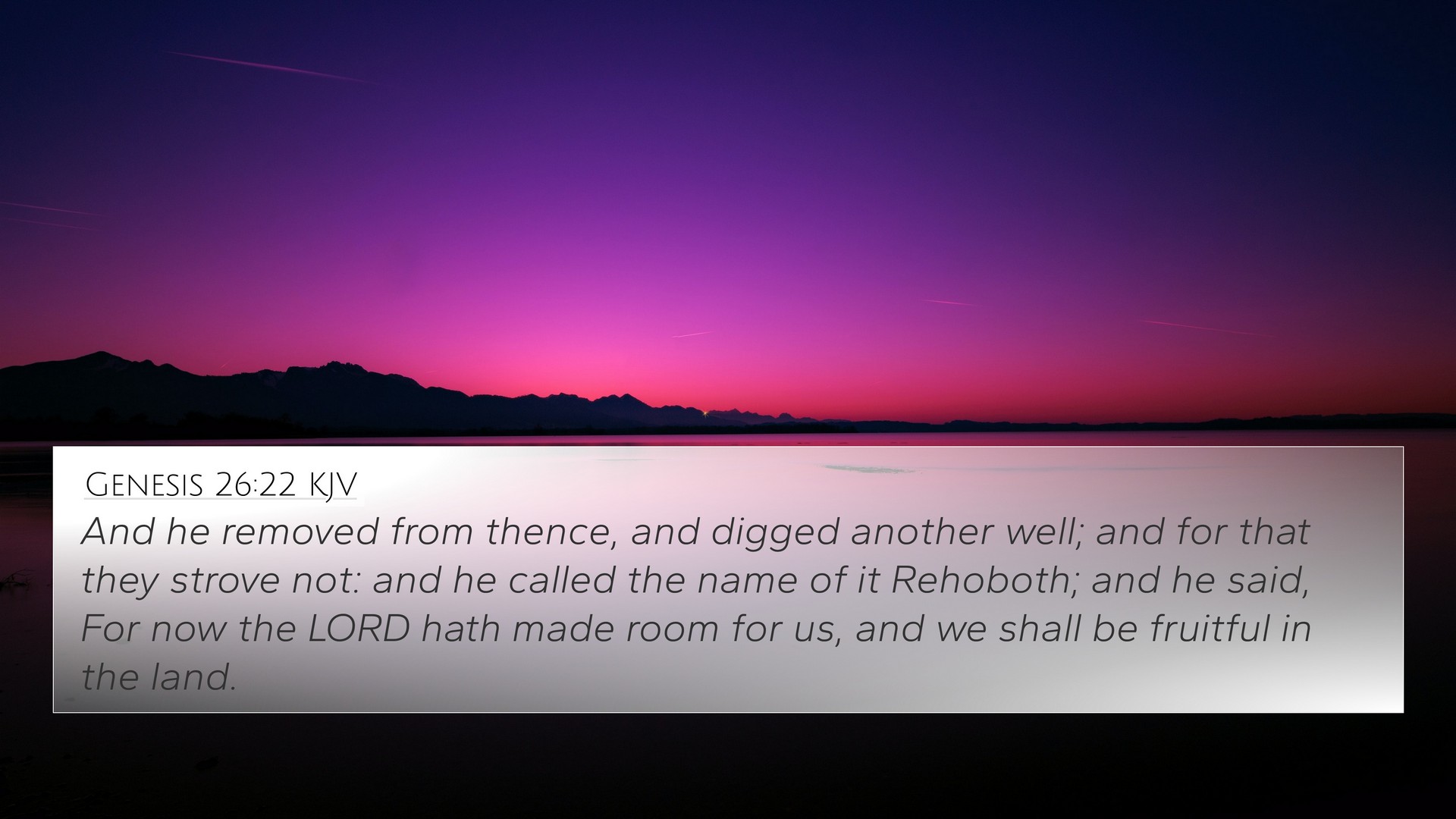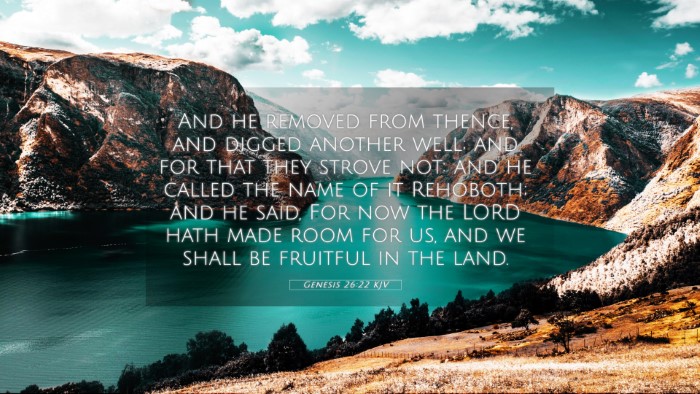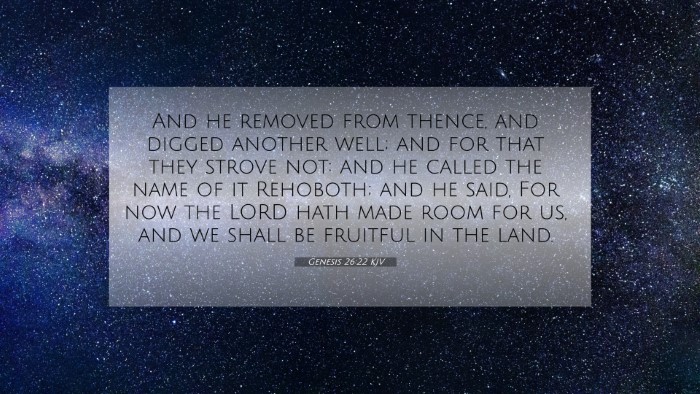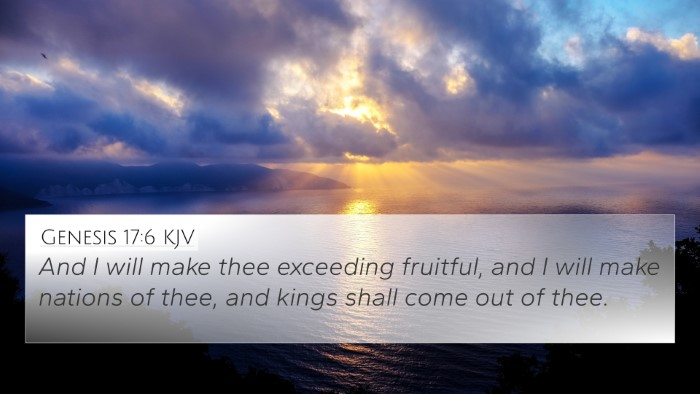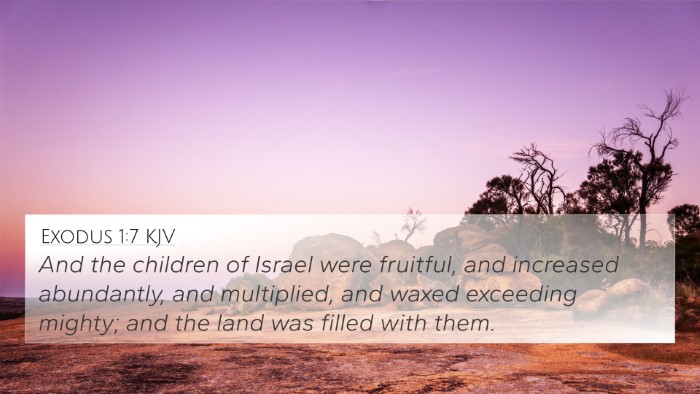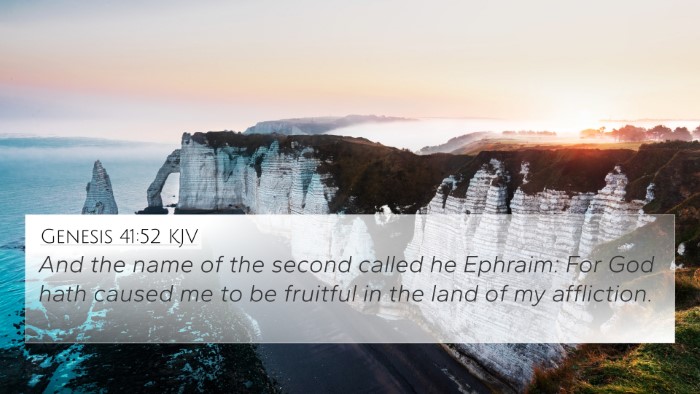Genesis 26:22 (KJV): "And he removed from thence, and digged another well; and for that they strove not: and he called the name of it Rehoboth; and he said, For now the Lord hath made room for us, and we shall be fruitful in the land."
Overview of Genesis 26:22: This verse recounts a significant moment in the life of Isaac, son of Abraham, as he faces opposition while digging wells in the land of Gerar. After facing strife over a couple of wells, he finally digs a third well that does not meet with conflict, leading him to name it Rehoboth, signifying spaciousness and divine blessing.
Insights from Public Domain Commentaries:
- Matthew Henry: Henry emphasizes that Isaac’s perseverance in digging wells symbolizes spiritual fortitude. The name "Rehoboth" signifies a blessing from God, where Isaac acknowledges God's provision of space and opportunity for prosperity. The commentaries reflect on how this act displays God's favor as Isaac settles in the land, free from strife.
- Albert Barnes: Barnes highlights the significance of the name Rehoboth, connecting it with God’s promise. He illustrates how Isaac’s actions are an emblem of trust in divine direction, as moving from conflict to peace exemplifies the believer's journey. It also underlines the importance of seeking God in moments of contention and how He may grant respite and fruitfulness.
- Adam Clarke: Clarke notes that the word "Rehoboth" means "room" or "spaciousness." He explains that Isaac's success in this regard indicates God's blessings upon him in the midst of trials. Clarke draws attention to the broader biblical theme of divine provision and the believer’s calling to remain faithful in times of struggle.
Bible Verse Connections:
- Genesis 21:30-31: Abraham's significance in digging wells is mirrored in Isaac's experience, laying the foundation for the importance of water and sustenance.
- Genesis 12:1-3: God's promises to Abraham reflect in Isaac's life, including the inheritance of land and blessings.
- Psalm 37:3: Trust in the Lord with your endeavors leads to fruitful living, paralleling Isaac’s experience after he moved away from strife.
- Isaiah 54:2-3: A promise of expansion correlates with Rehoboth, illustrating God’s intent to bless His people beyond measure.
- John 15:5: The call to abide in Christ shows the spiritual analogy of being fruitful, akin to Isaac's well-digging metaphor.
- Philippians 4:19: Assurance that God will meet every need reflects Isaac’s recognition of God’s provision in the land of Gerar.
- 2 Corinthians 9:8: God's ability to provide abundance comes across in Isaac's experience of spaciousness, emphasizing divine blessing.
Thematic Bible Connections:
This verse invites a broader exploration of God's provision and the believer's response to challenges:
- Inter-Biblical Dialogue: Establishes a conversation between the struggles of the patriarchs and the faithful, underlining God's ubiquitous support.
- Comparative Bible Verse Analysis: Isaacs' challenges can be compared to those of Jacob and Joseph, who all faced opposition yet ultimately thrived due to God's favor.
Practical Application:
- Tools for Bible Cross-Referencing: Use a concordance or software to explore Biblical terms like "wells" or "blessings" for deeper study.
- Cross-reference Bible Study: Engage in thematic studies to understand the nature of God's provision through both testaments.
- Identifying Connections: Find links between Old and New Testament promises regarding sustenance and spiritual growth.
Conclusion: Genesis 26:22 reveals the faithfulness of God in providing for Isaac, a theme that resonates throughout Scripture. The verse not only serves as a historical account but also assures modern believers of God's capacity to ensure fruitful living despite external conflicts. The connections drawn from various Bible verses reinforce the consistency of God's promises and His directional guidance, reflecting the depth of inter-Biblical dialogue on divine provision.
